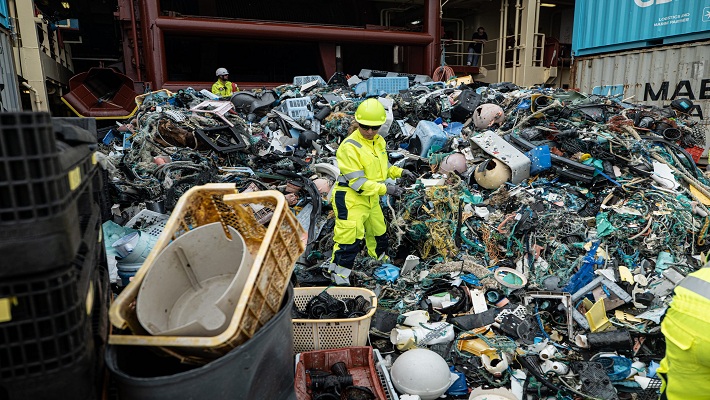
Recycling is the recovery and reprocessing of waste materials into new goods. The basic stages of cycling include garbage collection, sorting, and processing or manufacturing new goods. Materials that may be recycled include iron and steel waste, aluminium cans, glass bottles, paper, wood, and plastics. The recovered waste products are used as substitutes for raw resources in the majority of manufacturing businesses. Solid waste management has become a pressing issue worldwide, as the amount of waste generated continues to increase alarmingly. The disposal of waste has significant environmental and social consequences, such as land and water pollution, greenhouse gas emissions, and public health risks. Recycling is important in solid waste management, as it can significantly reduce the amount of waste that ends up in landfills and incinerators. In this article, we will explore the importance of recycling in solid waste management.
Reducing Landfill Space
One of the most significant benefits of recycling is the reduction in greenhouse gas emissions. Landfills and incinerators are major sources of greenhouse gas emissions, including methane and carbon dioxide. By diverting waste from these facilities through recycling, we can reduce the amount of greenhouse gases emitted into the atmosphere. Recycling conserves natural resources, such as timber, water, and minerals. The production of new products from recycled materials requires less energy and resources than the production of new products from virgin materials. Additionally, recycling helps to reduce the need for landfill space, which can be costly and harmful to the environment. Recycling helps to conserve natural resources such as timber, water, and minerals. When we recycle paper, for example, we are reducing the need to cut down trees to make new paper. By recycling metals, we are reducing the need to mine and extract new metals from the earth. Recycling helps to conserve these resources, which in turn reduces the impact of human activities on the environment
Creating Jobs and Stimulating Economic Growth
Governments around the world are implementing fiscal and monetary policies to create jobs and stimulate economic growth. This includes investing in infrastructure, providing tax incentives to businesses, providing financial assistance to small businesses, and cutting interest rates. The unemployment rate increased in 2020, surging to 13.0 per cent in the second quarter of the year before easing to 6.7 per cent in the fourth quarter. Recycling can also provide economic benefits to communities. Recycling facilities and programs create jobs in areas such as collecting, processing, and marketing recyclables. Recycling can also save communities money by reducing the amount of waste that needs to be disposed of in landfills and incinerators. The cost of building and operating a landfill or incinerator can be significant, and recycling can help to defer these costs. Additionally, recycling can generate revenue through the sale of recycled materials, such as aluminium, paper, and plastic. Recycling programs require workers to collect, sort, and process materials. The recycling industry also creates new markets for recycled materials, which in turn creates jobs in manufacturing and other sectors. By recycling, we can support local economies and help to create sustainable jobs
Conserving Natural Resources
Recycling can also have social benefits, such as community engagement and education. Recycling programs can bring communities together by providing opportunities for volunteering and outreach. Recycling education can also help to raise awareness about the importance of waste reduction and sustainable practices. Recycling can also improve public health by reducing the amount of waste that ends up in landfills and incinerators, which can release toxins into the environment For example, planting trees can help absorb carbon dioxide and produce oxygen, which can help offset the greenhouse gases that contribute to climate change. Trees also provide shade and can help reduce energy usage by cooling homes and businesses in the summer.
Recycling is a critical component of solid waste management. It provides environmental benefits by reducing greenhouse gas emissions, conserving natural resources, and reducing the need for landfill space. Recycling can also provide economic benefits by creating jobs and saving communities money. Finally, recycling can have social benefits, such as community engagement and education, and can improve public health by reducing the amount of waste that ends up in landfills and incinerators. By incorporating recycling into our waste management practices, we can help to create a more sustainable and environmentally responsible future.







